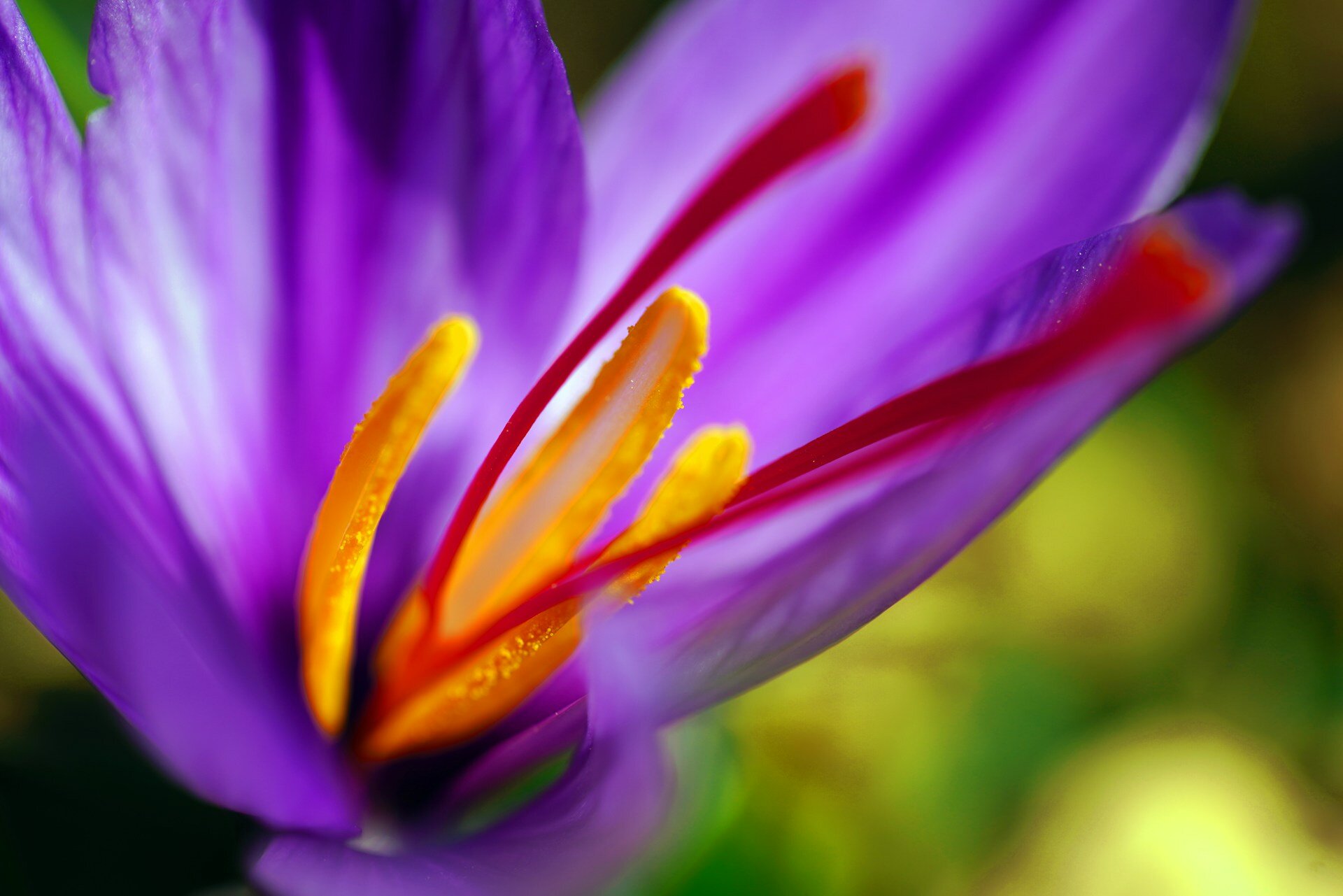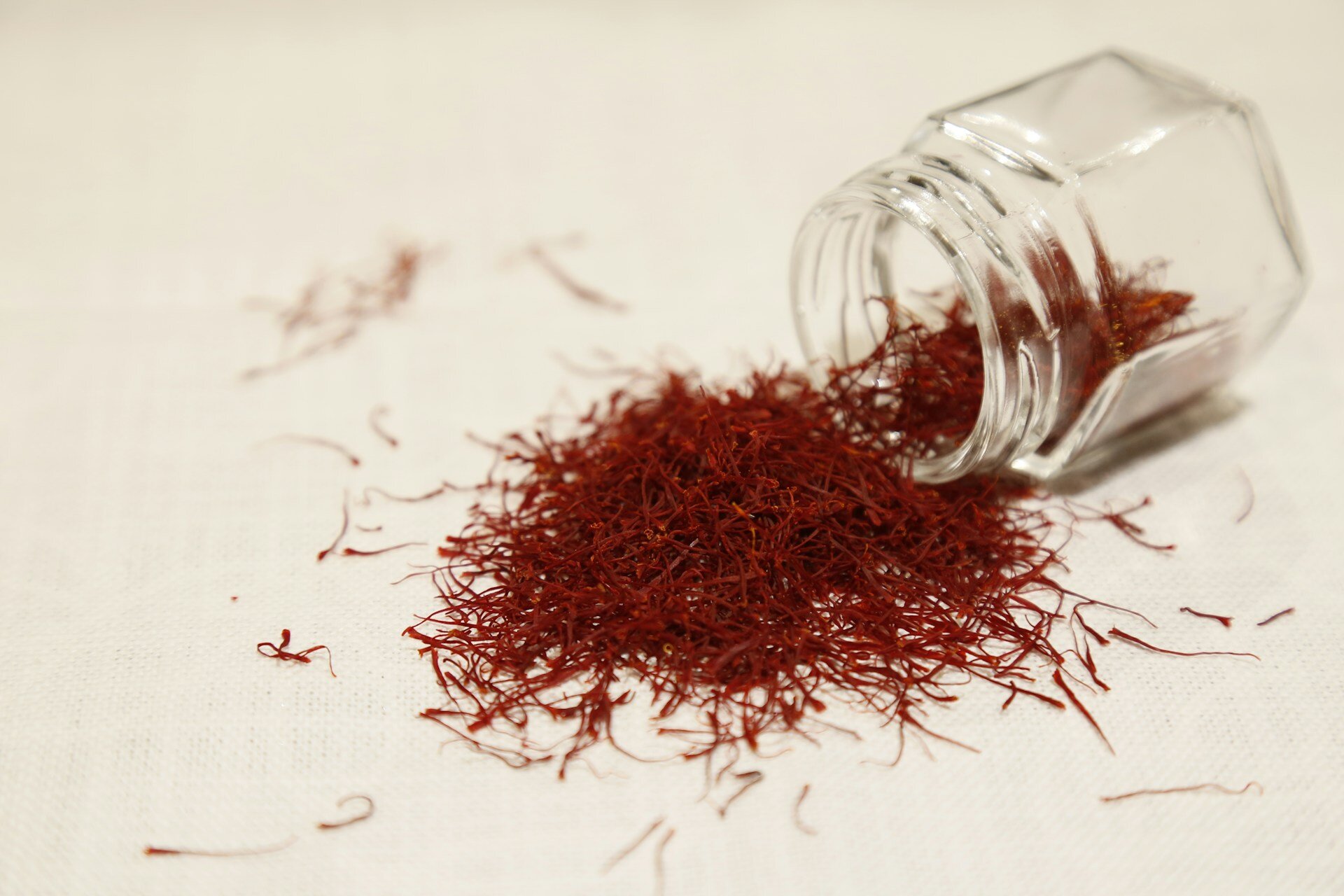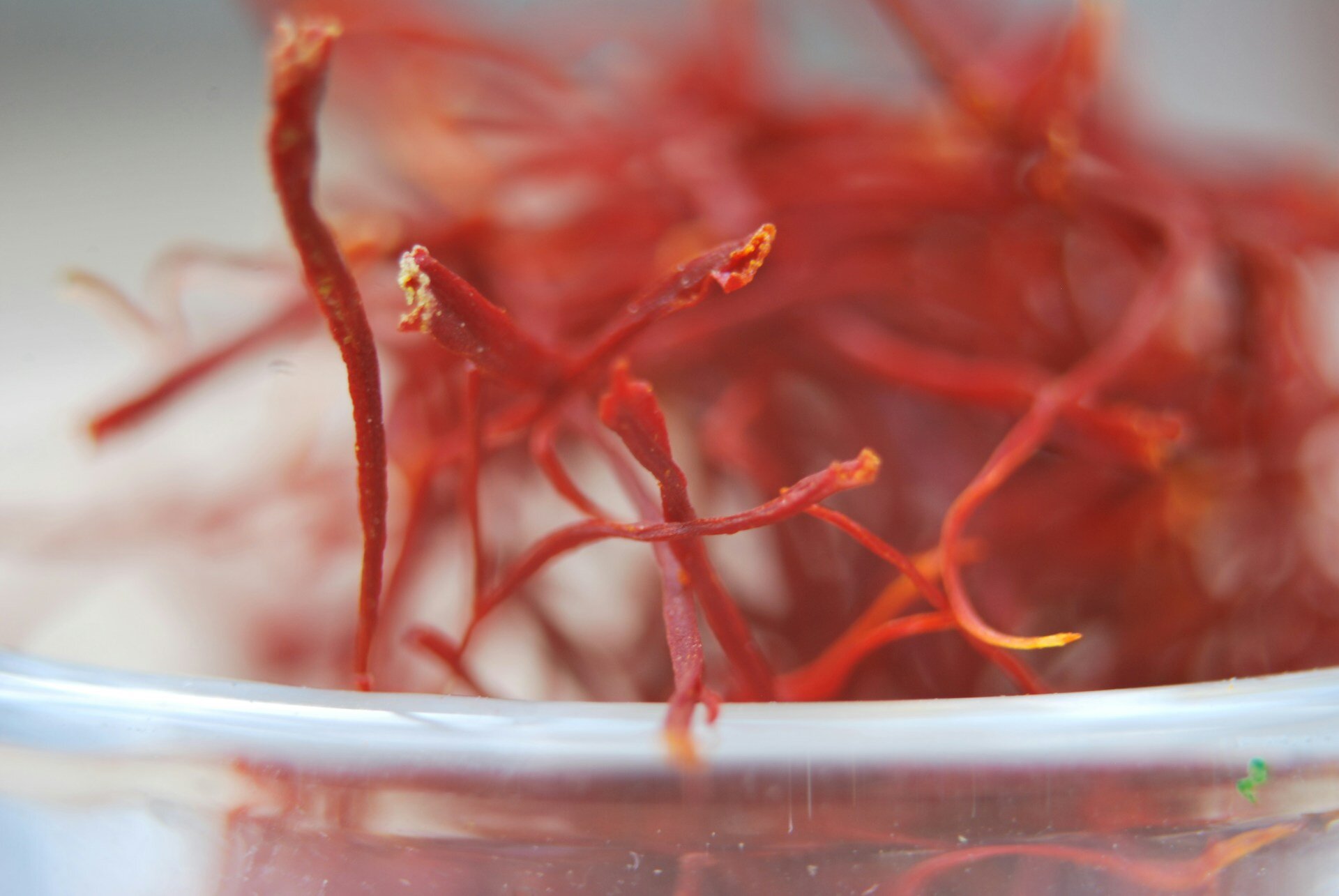how to grow saffron
the world's most expensive spice
Saffron
Sativus Crocus
Saffron is the bright red stigma of the flower Sativus Crocus. The 3 Saffron threads are removed from the flower and dried. This flower is planted, harvested, and processed by hand which makes it the worlds most expensive spice.
Planting
Site and Soil Preparation
Choose a well-drained site with full sun exposure. Saffron crocuses thrive in sunny spots that mimic their native environment. You can still get flowers in partial sun, although they will be smaller.
Planting
Plant saffron corms between August and October. This timing allows the plants to establish themselves before the winter. Corms can be planted in rows or beds. Plant corms 3-6 inches deep, with deeper planting recommended in colder zones (up to 6 inches) to protect them from frost. Space the corms about 1-3 inches apart to give each plant enough room to grow and multiply.
Care During Growth
Saffron requires minimal watering during the growth phase. The key is to water the corms in the spring and summer, which is when they develop new daughter corms. Keep the area around the plants free of weeds to reduce competition for nutrients.
Flowering and Harvesting
Flowering typically occurs between late October into November, depending on the climate. Pick the flowers early in the morning when they are fresh and fully open. After picking, gently separate the red stigmas from the rest of the flower indoors. This is crucial as the stigmas are the part of the plant used as saffron spice.
Drying and Storage
Dehydrate or air-dry the saffron stigmas thoroughly to preserve their flavor and color. This can be done in a warm, dry, and dark place. Store the dried saffron in an airtight container away from light to maintain its quality.
Renewal and Replanting
Every four years, dig up and replant your saffron corms. This practice helps rejuvenate the stock and maintain healthy growth.


Harvesting and Drying
Remove the yellow and white portion of the stigma will give you Negin Saffron (the highest quality parts of the stigma). From there it's time to dry out the spice. Air drying is the most common option with dehydrating and baking

